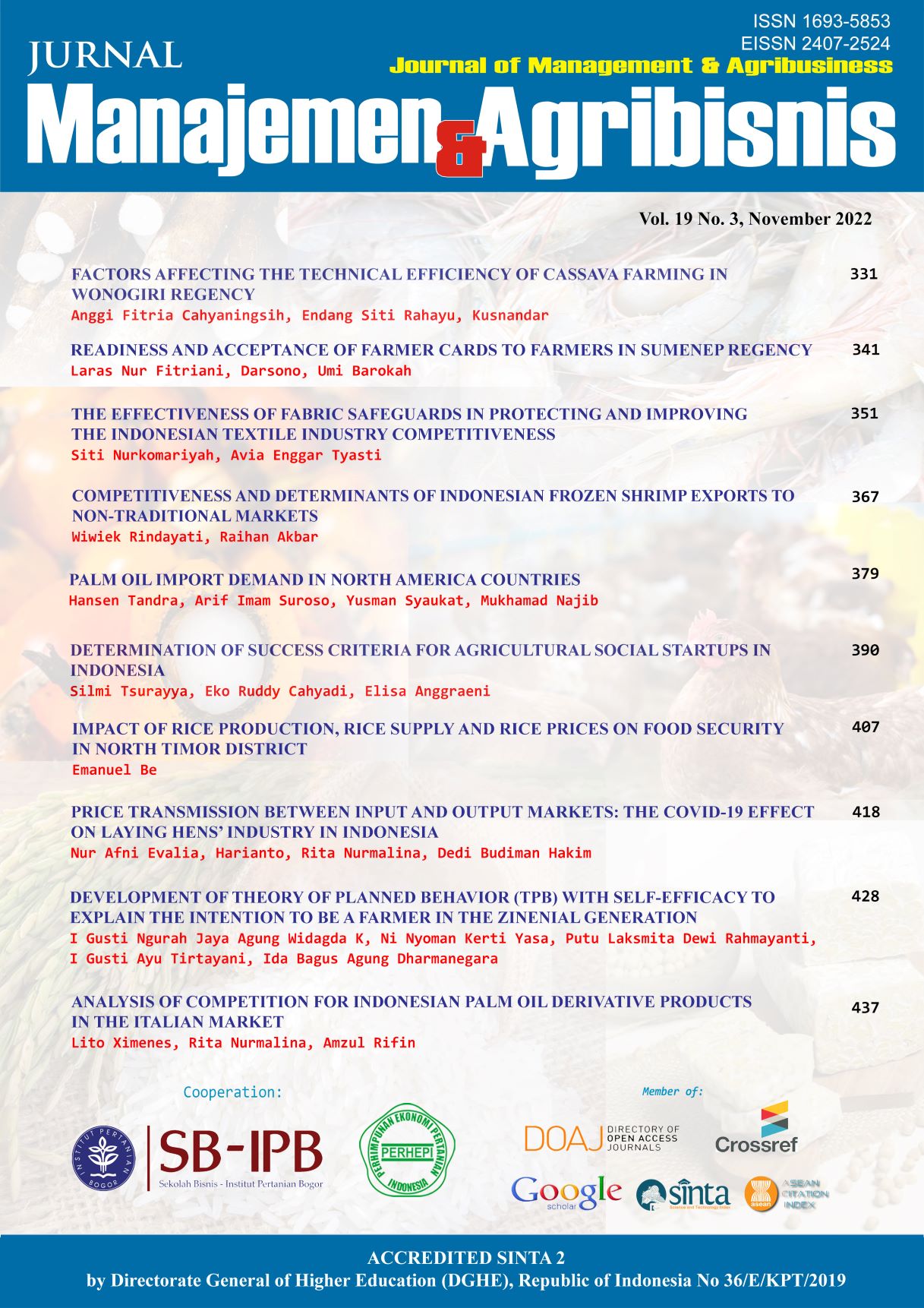Price Transmission Between Input and Output Markets: The Covid-19 Effect on Laying Hens’ Industry in Indonesia
Abstract
Corn and poultry are two strategic commodities supporting food security and highly dependent on one another. This study analyses the short-term and long-term relationship between the price variables for eggs, broiler, and corn. It determines the effect of COVID-19 at the producer and consumer levels on the price of eggs in 28 provinces in Indonesia using the Panel Autoregressive Distributed Lag (PARDL) – Pooled Mean Group (PMG) approach. The PARDL estimation showed a short-term relationship between egg, broiler, and corn price variables at the producer and consumer levels, and this is shown by a significant positive and negative relationship in several provinces. There is a substitution relationship between laying hens and broiler in North Sumatra, Riau, South Sumatra, West Java, Central Java, Banten, West Nusa Tenggara, North Sulawesi, and West Papua, while the complementary relationship only occurs in Bali. In addition, the Indonesian laying hen industry should be supported by integrated policies from upstream to downstream. This is a policy of the lowest and the highest retail price and those that regulates the creation of corn supply balance inputs as the main feed for laying hens.
Keywords: corn, COV-19, laying hens, PARDL, price transmission
Authors
Authors who publish with this journal agree to the following terms:
- Authors retain copyright and grant the journal right of first publication with the work simultaneously licensed under a Creative Commons Attribution License that allows others to share the work with an acknowledgement of the work's authorship and initial publication in this journal.
- Authors are able to enter into separate, additional contractual arrangements for the non-exclusive distribution of the journal's published version of the work (e.g., post it to an institutional repository or publish it in a book), with an acknowledgement of its initial publication in this journal.
- Authors are permitted and encouraged to post their work online (e.g., in institutional repositories or on their website) prior to and during the submission process, as it can lead to productive exchanges, as well as earlier and greater citation of published work (See The Effect of Open Access).

